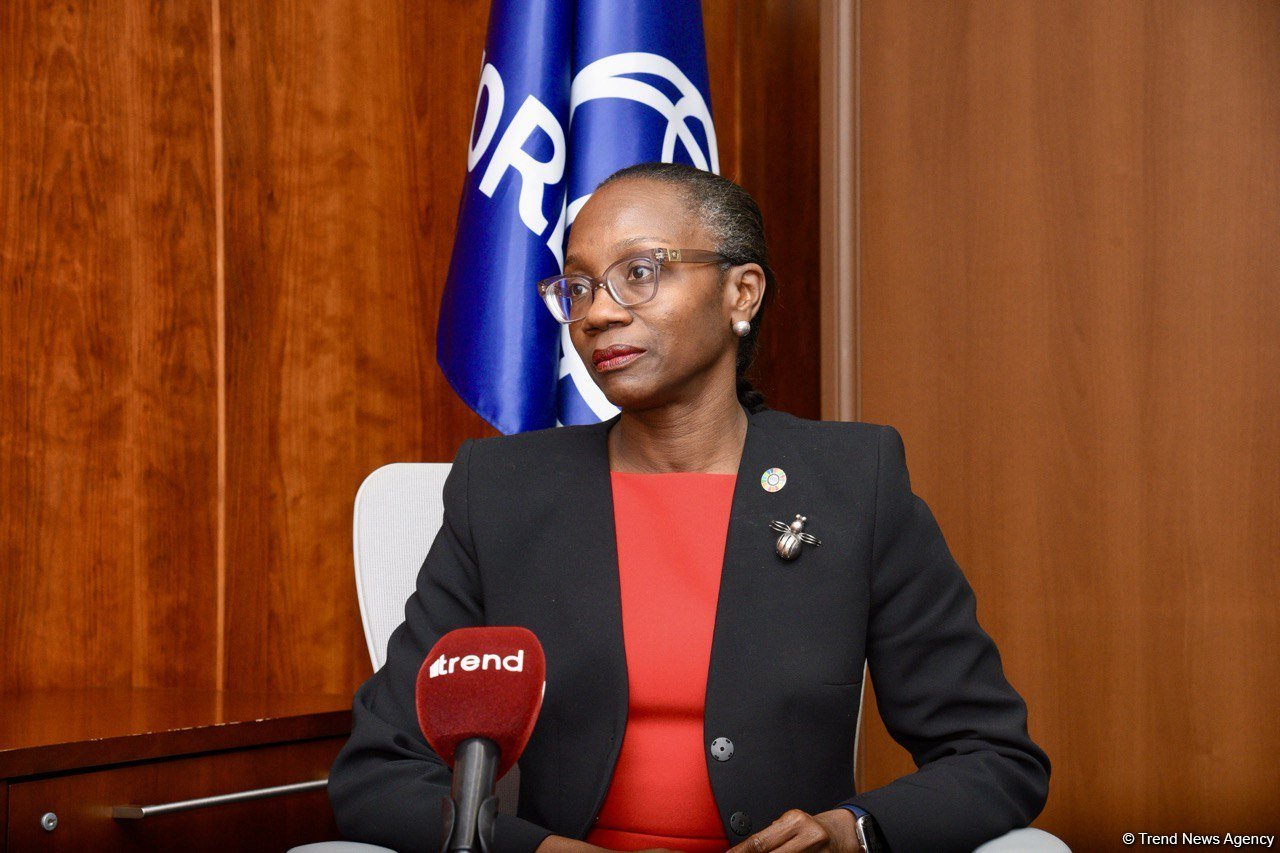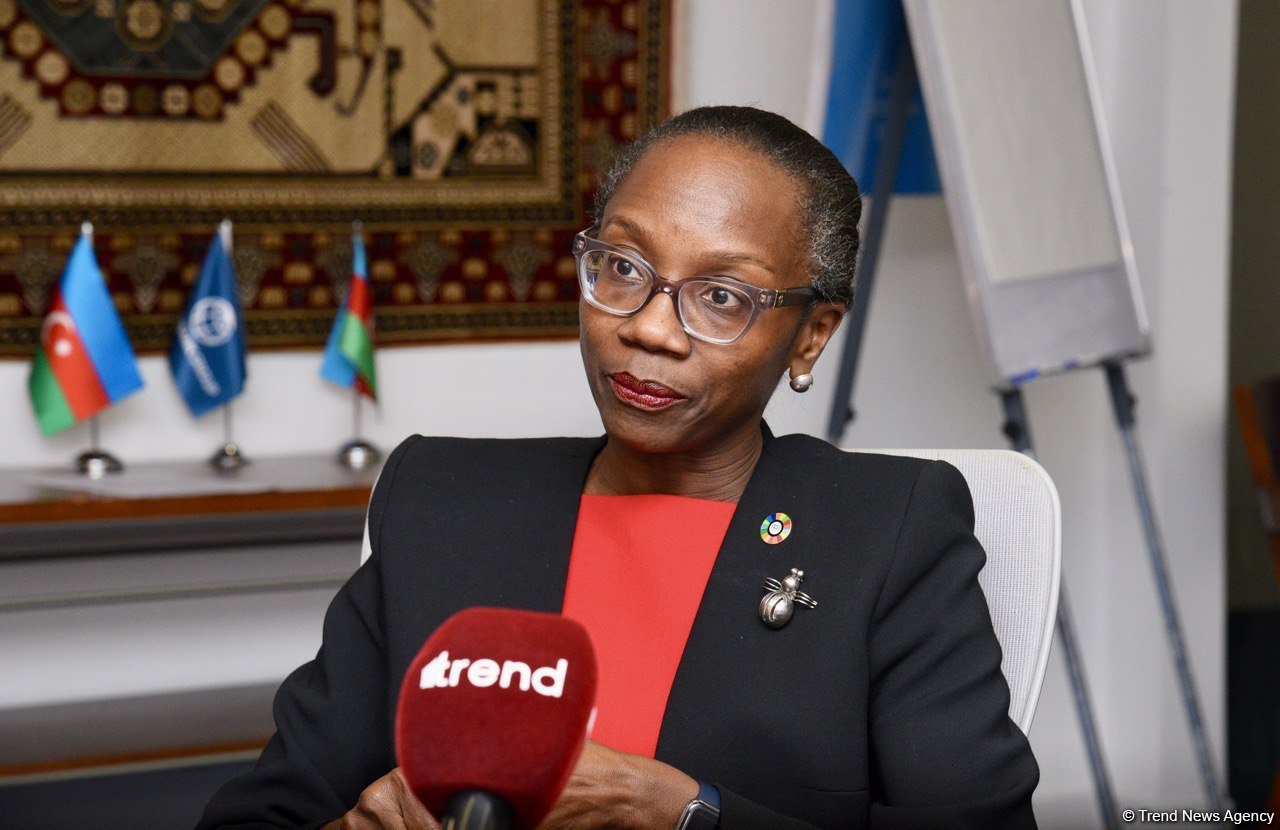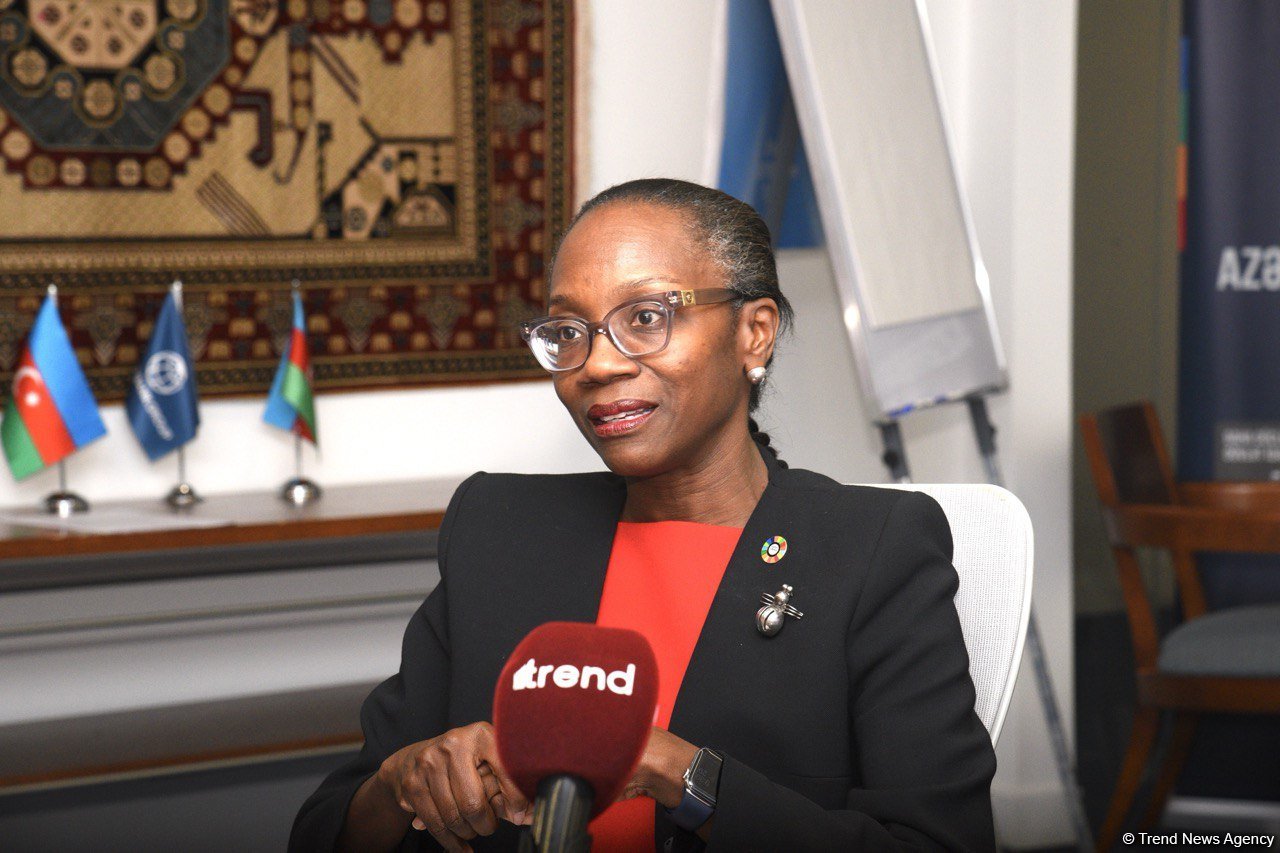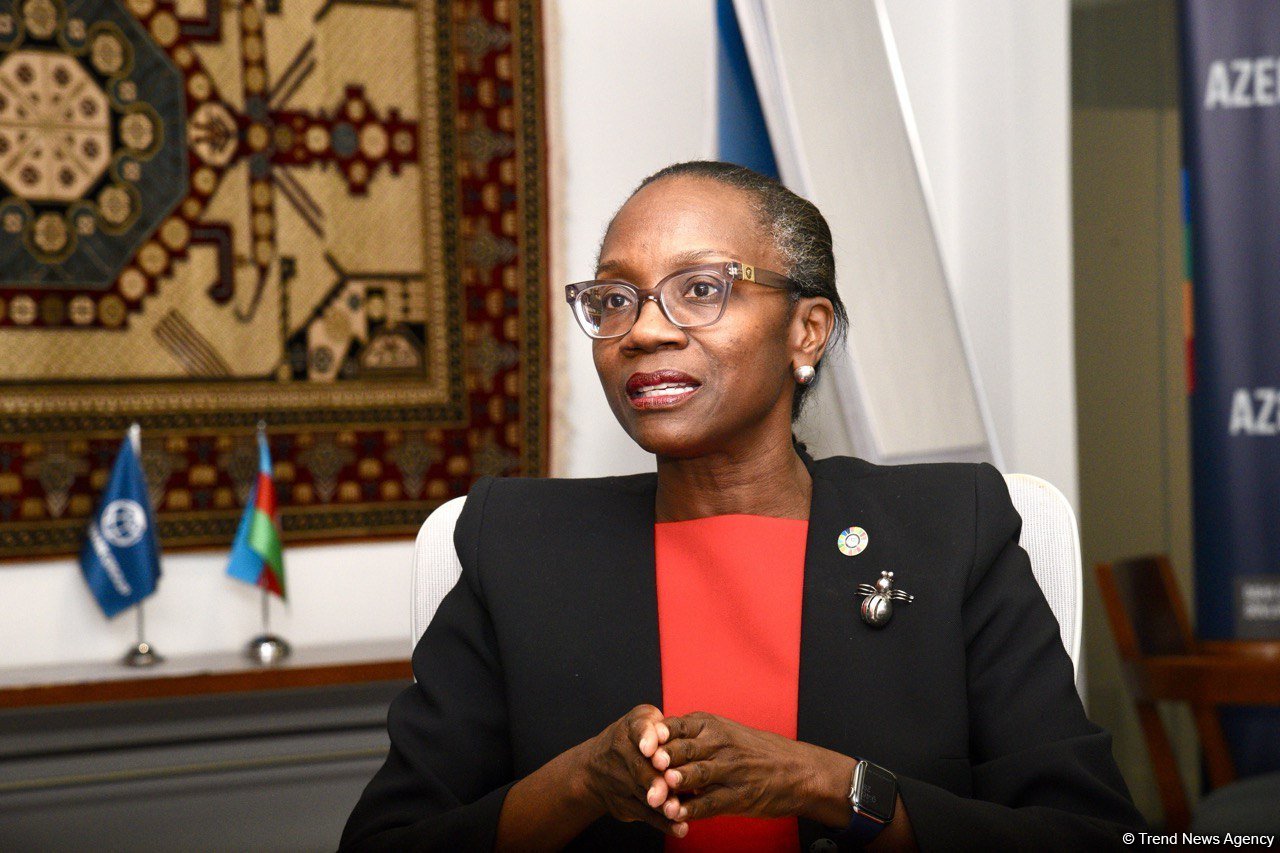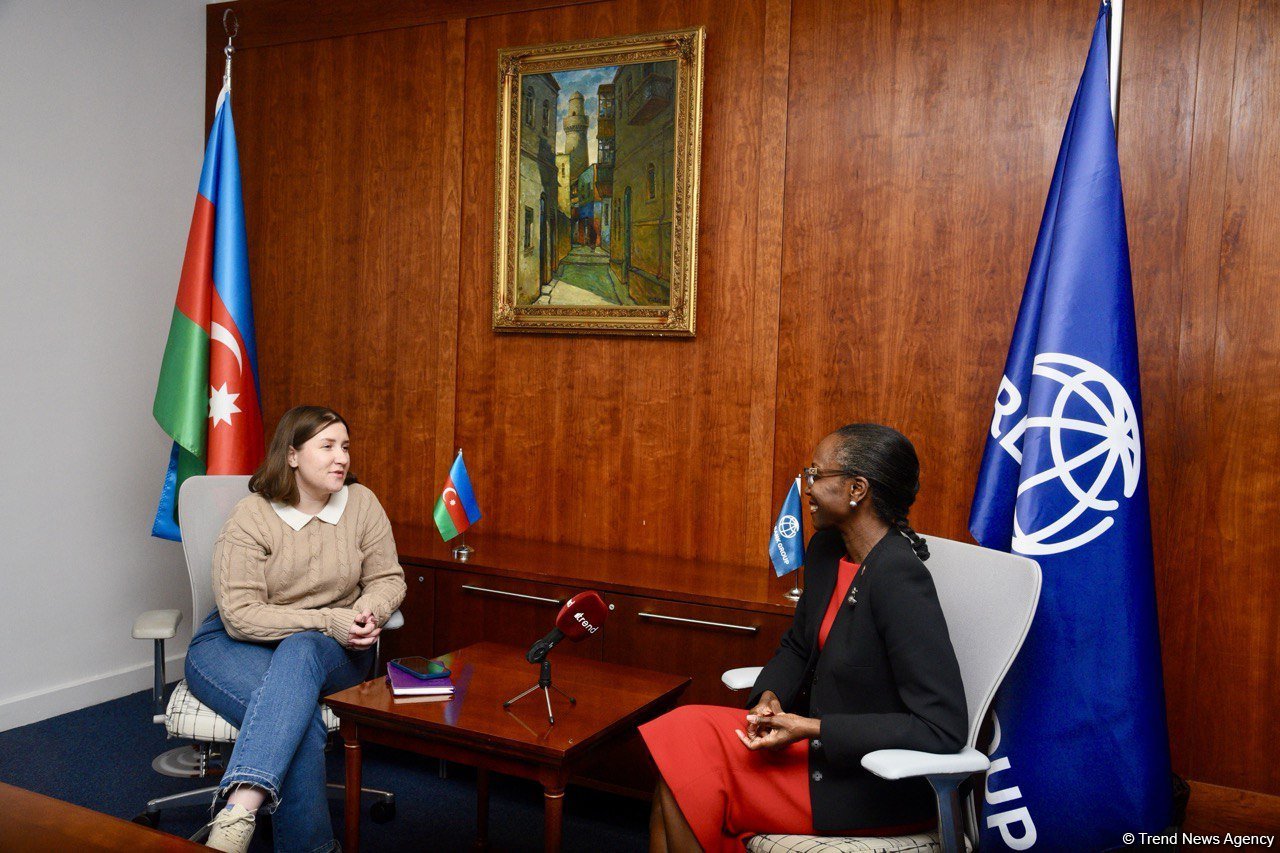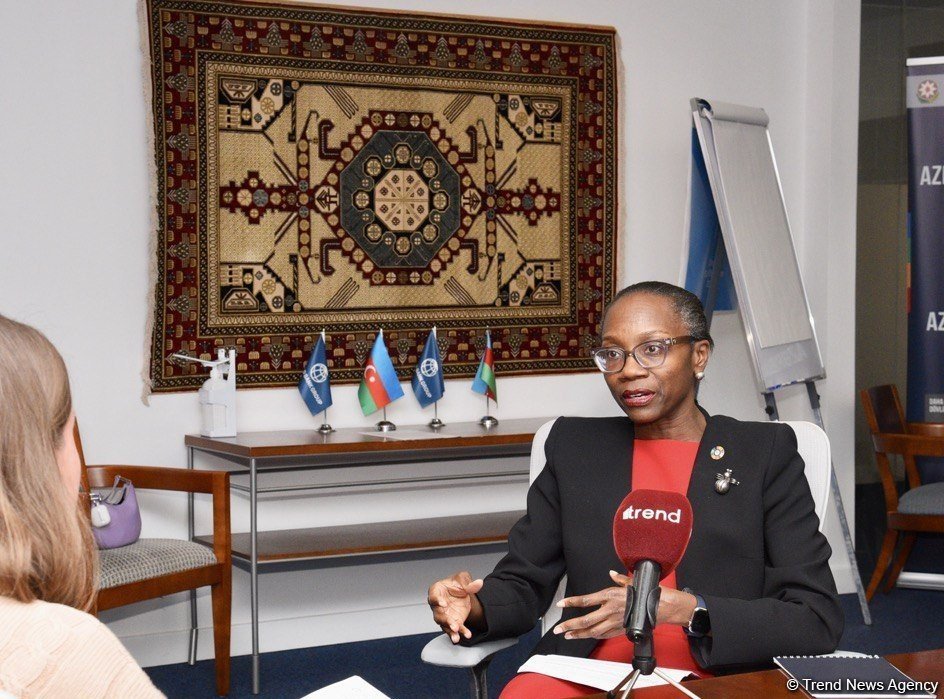BAKU, Azerbaijan, December 11. The World Bank thinks that there are new opportunities for Azerbaijan to activate the decarbonization process, Rolande Pryce, WB Regional Director for the South Caucasus, told Trend in an exclusive interview.
New decarbonization opportunities for Azerbaijan
"Decarbonization is in Azerbaijan’s best interest. We see an opportunity for this here, and this has already been set out in the country’s strategy. We are very specific in our new report on Azerbaijan about the areas of opportunity and, in this instance, we speak about clean energy, energy efficiency, as well as agriculture and water resources, as areas where the country could take action now to have the greatest impact," she said.
According to the regional director, this flagship report, called Country Climate and Development Report (CCDR) will be of high importance.
"This Country Climate and Development Report is a new core diagnostic of the WB. We have spent a lot of time doing analytical work to inform our engagement with our clients and also to advise them on their policies and strategies. What we hope to get from this report is a sense of priorities and impactful actions that the country can take to reduce greenhouse gas emissions and to boost climate resilience while delivering on competitiveness and growth and inclusion in accordance with the country's development objectives," Pryce explained.
She noted that the WB always takes into account Azerbaijan’s 2030 medium-term national priorities as a foundation, as well as the socio-economic development strategy that goes to 2026, to develop its recommendations.
"To expedite the process of decarbonization, Azerbaijan must achieve several key objectives. Our main advice is that Azerbaijan needs to get the prices right. Currently, the country is inclined towards fossil fuels because they are relatively inexpensive, making them the go-to option. The government's strategies outline plans to alter this mix," she said.
According to Pryce, the WB’s primary recommendation for Azerbaijan is to reduce fossil fuel subsidies, and the second is to potentially incentivize private capital flows towards renewable energy investments, as well as investments in energy efficiency.
"This will alter the rules of the game and the emphasis. It's important to mention that the government has already developed the strategy, so the question now is the pace at which the country will implement it. The WB believes the government must accelerate these reforms," she explained.
Azerbaijan's significant volume of wind and solar energy resources
"One of the country’s notable advantages is its strategic geographic location. The country's current strategies outline how they plan to implement renewable energy initiatives. The World Bank operates by invitation from the government to assist in specific types of changes. Intensive discussions are already underway between the World Bank and the government of Azerbaijan," she said.
According to Pryce, investments in wind and solar projects are aligning with regional initiatives like the Black Sea Energy Submarine Cable project, enabling Azerbaijan to potentially export green energy.
"The government has specific plans for developing offshore wind potential in the Caspian Sea, attracting considerable private investments. There is an opportunity for the WB to collaborate with the government in building the project pipeline," she added.
The regional director pointed out that creating a list of shovel-ready projects and determining how to engage the private sector is crucial. "Careful planning and consideration are needed to incentivize private sector actors to invest in these areas. These endeavors require thoughtful reflection and planning, and the bank is prepared to support this process," she noted.
Azerbaijan's capability to produce green and blue hydrogen at cost-effective rates
"I have already mentioned that Azerbaijan has tremendous potential, particularly in terms of abundant solar and wind resources. This implies a significant capability to produce green and blue hydrogen at cost-effective rates. We anticipate witnessing this development in the mid-2030s," she said.
The regional director pointed out that this is a relatively new field, with emerging technologies.
"What's noteworthy is the government's proactive engagement with private sector stakeholders to discuss the development of this sector. Typically, the private sector leads in terms of technological advancements, making this collaboration advantageous," Pryce noted.
In terms of the potential next steps from the bank's perspective, the WB recommends conducting a comprehensive study to evaluate the feasibility of developing green energy exports, she said.
"This study should outline a specific roadmap, and delineate the role of the government to minimize it to incentivize external participation without the government bearing the entire investment burden. Additionally, examining the prospects for a domestic hydrogen industry and potential domestic hydrogen markets in transportation, industries, and heating is crucial. These areas present opportunities that we aim to explore. However, at the bank, we prefer not to proceed without a thorough understanding of the situation on the ground," the regional director explained.
The WB’s suggestion for Azerbaijan is to undertake a study of this nature, conducting thorough research, and using the findings as the foundation to identify necessary investments and reforms that could facilitate the further development of the sector, Pryce said.
Feasibility study for the Black Sea Energy Submarine Cable project
Regarding a feasibility study for the Black Sea Energy Submarine Cable project, the regional director noted that it is expected to be ready by April - May 2024.
According to Pryce, the initial step involves a feasibility study initiated by the government of Georgia under an existing WB-funded operation.
"This study, covering the entire project, is expected to be completed by April or May of next year. It will serve as the foundation or basis for the subsequent investments in the project. Georgia, in particular, is currently preparing an operation to conduct feasibility studies for its own investments. This project, funded by the World Bank, is part of a series. We plan to present this specific project to the board by March of next year," she said.
"In discussions with the government of Azerbaijan, the focus has been on leveraging wind and solar resources to meet the energy demands of the market. Georgia's upfront financing for the initial phase of this work is seen as a global good for all participating countries. As we define structures and institutions, each country will figure out how to afford or contribute to the groundwork laid by Georgia with these investments. The WB has been a strong advocate and partner, providing technical support, and will continue to do so," the regional director explained.
The WB is engaging robustly with the EU, which will be the off-taker, and with other countries in the EU, regarding this project, as it raises high interest among various countries, she added
"Recent engagements, including the Tbilisi Silk Road Forum, have shown growing interest from other countries to participate. The Black Sea Underwater Cable project is not only focused on energy exports but also digital initiatives, contributing to the resilience of countries in ways that are currently lacking. These are exciting times, with significant advancements in both the Middle Corridor work and the Black Underwater Sea Cable project," Rolande Pryce said.
WB is eager to support the development of the Middle Corridor
"One of the key findings is that by 2030, with the right investments and policy reforms, there is the potential to triple trade volumes along this corridor and halve the time. In the past, the Middle Corridor wasn't as interesting due to a seamless route through one large country to the north. However, given the current geopolitics, it has become more interesting, but work needs to be done in the areas of investments and policy reforms to make it truly viable," she said.
As she noted, the WB’s first step was to conduct the analysis, and the report published as a result focused on Azerbaijan, Kazakhstan, and Georgia as key actors within the Middle Corridor.
"We identify specific actions needed to make travel seamless, akin to moving through one large country. The first step involves managing logistics solutions along the entire corridor. Travel should not feel disjointed, such as stopping at the Georgian border after going by rail through Azerbaijan. It should feel like a smooth journey, regardless of the means of transport, as if moving on a fast highway. A critical piece as well is simplifying procedures and processes, particularly at the border. You don't want to halt progress by having people investigate trucks or spend time on inspections, etc. Once cleared and approved at one point on the corridor, there should be a mechanism for it to move relatively quickly throughout. The bank is capable of supporting all processes and various solutions based on the specific requests of each country," she explained.
According to Pryce, because the Middle Corridor envisions several different types of transport, such as sea, rail, and road, the participants have to try to manage the movement from one form of transport to another.
"We hope to work towards making it seamless. Then there is the question of prioritization of investments. If all these countries come together and see this as a joint regional project with shared benefits, we should sit together and discuss which railway line to focus on and where we are going to improve the roads. For example, in Georgia, the WB has been investing for years in their east-west highway, which will be part of the Middle Corridor. In Azerbaijan, we have been having conversations about the digitalization of railways, for example. However, we haven't necessarily all sat together as a group of countries and as a development partner institution with other development partner institutions because these investments are going to be quite significant," she added.
The WB expects to be at the table with other development partners, as well as the countries, to determine the priority investments and means of cooperation to make those initiatives happen.
"We hope that the report we've prepared will serve as the launchpad for that, and the World Bank is very much committed to helping countries deliver on these objectives," the regional director said.
New WB country partnership framework for Azerbaijan
"This is a truly dynamic time. It marks a dynamic phase in the World Bank's relationship with the government. In fact, the government has expressed, in the words of the President whom I met in early October, that this is the moment to reinvigorate the relationship. We feel both humbled and privileged to have this opportunity to embark on this journey with Azerbaijan," she said.
According to Pryce, it is also a dynamic moment geopolitically and in terms of the global movement towards decarbonization.
"Azerbaijan, a country that has achieved significant gains based on its focus and wealth in hydrocarbons, now has the chance to be at the forefront, serving as one of the enablers and fast movers in adapting to and managing the energy transition," the regional director pointed out.
She noted that private sector development is going to be one of the main pillars within the new partnership framework between the WB and Azerbaijan.
"In one of my recent conversations with the Minister of Transport and Digital Development, he shared his significant plans for greening cities, which we are very excited about. What I see before me is a slate of opportunities that truly reflects the country's ambitious reform agenda. I believe this will set Azerbaijan on a new trajectory when exploring various sources of growth. All these transitions provide the opportunity to shift away from the traditional source, which has been hydrocarbons," Pryce said.
In this regard, she noted that there is a need to create an opportunity for Azerbaijan to do more in terms of climate action.
"Our perspective is that Azerbaijan can transform climate action into new sources of growth by being an early mover among fossil fuel-exporting countries. There is an opportunity to capture a windfall. If we can truly leverage the opportunities in wind and solar energy, Azerbaijan could generate substantial revenues that can be used for other sources of growth to stimulate overall economic development in the country," the regional director explained.
"So, we're here to be a partner in this process. During this period, we've focused extensively on analytics. Now, we've reached a point where the government has expressed readiness to make investments. The bank is currently engaging with them on various dimensions, including renewable energy, greening cities, and the digitalization of railways. We are in the process of defining our new country partnership framework, and then we will clearly outline the pipeline. My goal is to serve the government and the people of Azerbaijan. Together, during this moment, we will precisely define the directions we're moving in," Rolande Pryce concluded.

